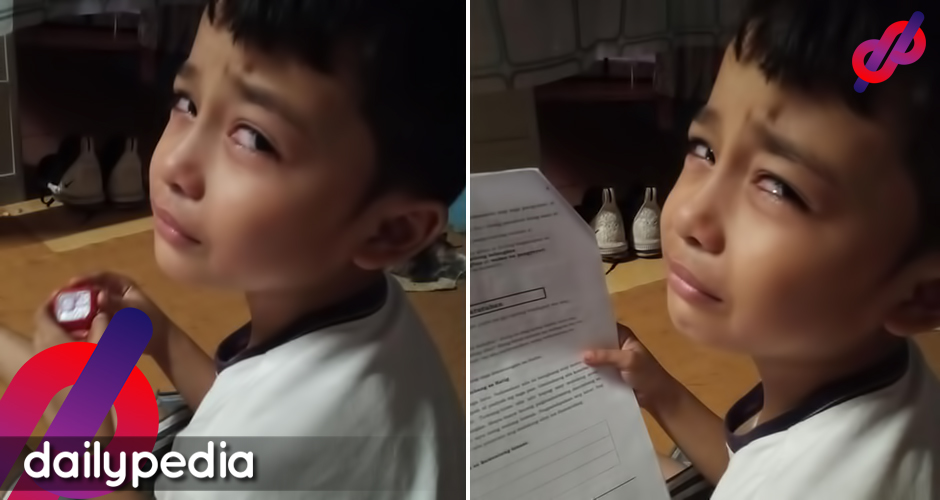101,836 shares. Over 114,000 reactions. At least 8,700 comments. That doesn’t include how many people have merely seen Wynona Rizza Garner’s post.

The post in question shows two photos of her younger brother, Axel, on the verge of tears, holding what appears to be his learning module for the school year 2020-2021.
The caption reads “*gets yelled at by me while being taught* ‘Don’t yell at me, ate. I’m sorry. I’m really having a hard time understanding (the lesson).’”
https://www.facebook.com/wynonarizza.garner/posts/1571021379752587
These scenes have become all too common in homes all over the country during the pandemic.
From teachers struggling to send out modules via the internet to teachers struggling to teach students online—students who seem to have mistaken online learning for online gaming.
Older teachers who are more in tune with classic teaching methods—face to face classroom sessions, consultations in the faculty room, etc.—are finding it hard to adapt to modern technology.
Netizens have long asked students and parents to be more considerate, especially since these older teachers have never tried teaching online classes before.
https://www.facebook.com/100004783064165/posts/1725631974272888/
Parents have also shared their pain in teaching their kids entire lessons—something that they never thought they would do until the pandemic hit. Most Filipino parents are used to helping out with homework and reviews for school exams, but not entire lessons.
Some have even said that it might be the parents who are actually enrolled in their kid’s online classes.
https://www.facebook.com/194388211065/posts/10158459338496066/
One of the problems it seems is that parents are having a hard time understanding the modules themselves. Some have said the instructions are too vague for them to understand; others just don’t have the time or patience to understand the modules—they’re usually busy with housework and whatever source of income they are working on.
Others still have a hard time understanding the modules because they themselves did not finish school. Parents have also cited how far forward students are today compared to when they were students.
Students have also shared their struggles in studying at home after years of being taught inside classrooms.
https://www.facebook.com/100002631262326/posts/3237533739677636/
The most common complaint from more advanced students (senior high school and college students) is that they can’t understand the module outright or do not have the motivation to study, seeing as being at home usually means spending time with their family.
Children with disabilities and children from indigenous groups, however, stand to lose the most during this pandemic.
A report from One News highlighted how disabled children and those coming from indigenous groups, who are already behind their peers, will be faced with an even bigger gap due to the pandemic.
The report cites a UNICEF statement saying “children with disabilities and children from indigenous groups…should also be prioritized to prevent negative outcomes that can last a lifetime. Postponing learning, despite the availability of alternative means, makes it less likely that they will ever return to school.”
Local groups have also pointed out how much the number of enrollees has dropped between 2019 and 2020 despite assurances from the Department of Education (DepEd) that gadgets and an internet connection are not required to enroll for the school year 2020-2021.
DepEd has also conducted training for teacher-broadcasters to appear on TV programs. They have enlisted the help of some of the country’s top broadcast journalists to train teacher-broadcaster candidates. They include Jessica Soho, Arnold Clavio, Korina Sanchez, and Karen Davila.
https://www.facebook.com/UsecAlainPascua/posts/1015287715597809?_rdc=1&_rdr
These teacher-broadcasters will then be used as talents for DepEd’s educational broadcasts to supplement remote learning, especially for places where internet reception isn’t as good.
LGUs, on the other hand, have been scrambling to make sure learning modules get to students who have enrolled for the current school year. Some LGUs have also gone out of their way and provided either laptops, PCs, tablets, or mobile phones to students who have opted for either 100% online or a blended learning set-up.
However, these steps may not amount to much unless the students, teachers, and their families know and understand the difficulties of online learning.


